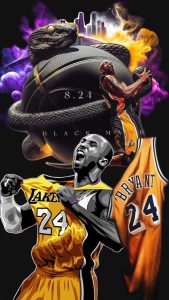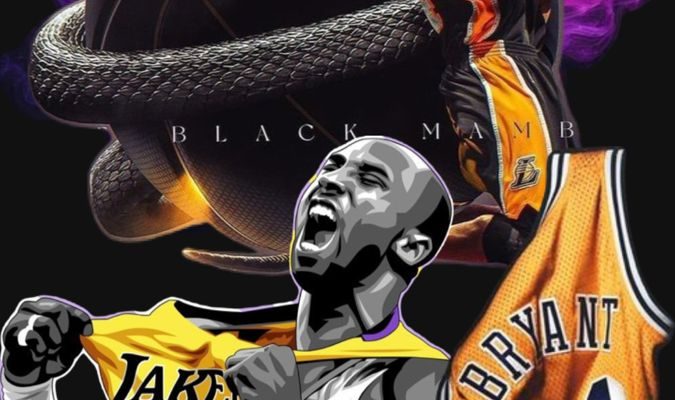Did the NBA Lose Its Toughness After Kobe? A Deep Dive Into a Changing Era of Basketball
For basketball fans around the world, Kobe Bryant represented far more than a superstar athlete—he embodied a mentality. His intensity, physicality, competitive fire, and relentless approach to the game became a standard that many players admired, feared, or tried to imitate. So when discussions surface about whether the NBA “lost its toughness” after Kobe retired and later tragically passed away, they tap into something deeper than simple nostalgia. They raise questions about how the sport has evolved, whether physical play has truly declined, and what “toughness” even means in the modern NBA.
To understand this question, we must look at how basketball has changed strategically, culturally, and physically over the past two decades—and how Kobe’s legacy continues to shape that conversation.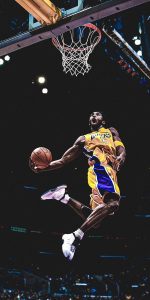
Kobe Bryant’s Era: A Time Defined by Grit
Kobe entered the league in 1996, a time when basketball was still heavily influenced by the bruising 1990s style. Players battled in the post, hand-checking was legal, and scoring was often low because defenses were allowed to be aggressive and physical. Toughness was not optional; it was part of survival.
Kobe embraced this environment. His reputation for playing through injuries, challenging bigger defenders, and dominating mentally as much as physically set him apart. Stories about his 4 a.m. workouts, playing with a broken finger, and practicing relentlessly after losses became iconic. He wasn’t just a star—he was a symbol of old-school competitive spirit.
As the NBA shifted around him, Kobe remained consistent: serious, disciplined, fearless. For many fans, he was the last superstar cut from that 90s mentality.
A League in Transition
By the time Kobe retired in 2016, the NBA had already undergone a massive evolution.
1. Rule Changes Reduced Physical Defense
The league introduced numerous rules to increase scoring and reduce injuries:
-
Hand-checking banned
-
Defensive three-second violation
-
Stricter flagrant foul definitions
-
Freedom-of-movement emphasis
These rules made it harder for defenders to physically challenge guards and wings, opening the game for shooters and fast-paced play.
2. The Rise of the Three-Point Era
Analytics reshaped the league. Teams began prioritizing three-pointers, spacing, and efficient scoring. Physical battles in the post became less central. The league shifted from power-driven play to speed, finesse, and perimeter skill.
3. Modern Players Are Built Differently
Today’s stars—Steph Curry, Trae Young, Damian Lillard, Luka Dončić—play with creativity and finesse. They dominate with skill rather than force. Even elite physical players like Giannis and LeBron rely more on athleticism than gritty, bruising contact.
This shift doesn’t mean players are softer—it means the sport has redefined what it values.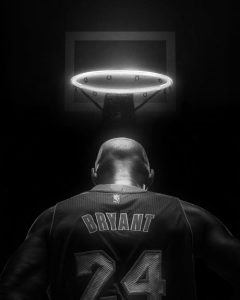
The Meaning of Toughness Has Changed
When fans say the NBA “lost toughness,” they often mean the physical toughness that defined Kobe’s era. But toughness is not limited to physicality. It can be:
• Mental toughness
Handling pressure, playing through adversity, showing discipline, competing at the highest level.
• Emotional toughness
Leading teams, facing criticism, carrying expectations, overcoming setbacks.
• Skill toughness
Shooting from deep under pressure, attacking strong defenders, performing in clutch moments.
The modern NBA still demands toughness—but in different forms.
Steph Curry may not hand-check or elbow his way to the rim, but his ability to play through constant movement, defensive traps, physical screens, and weight disadvantages is its own brand of grit.
Players today face intense travel schedules, higher scoring demands, and constant social media judgment. The game is different, but still tough—just not in the same way.
Did the League Lose Something When Kobe Left?
Even if toughness itself didn’t disappear, something did shift after Kobe. He represented a rare combination of old-school mentality and modern skill, and losing that presence—first to retirement, then to his tragic death—left a void.
1. Fewer Stars With His Mindset
While today’s players are extremely talented, few embrace Kobe’s sharp, sometimes ruthless competitive edge. He was part of a generation raised by legends like Jordan and influenced by the rougher 90s style.
Younger stars grew up in a different basketball culture—more skill-focused, less combative.
2. Iconic Rivalries Have Faded
Kobe’s intense rivalries with players like Allen Iverson, Paul Pierce, Tim Duncan, and even internal battles like Shaq vs. Kobe added a dramatic, confrontational element the league doesn’t emphasize as much anymore.
3. Leadership Styles Have Changed
Kobe led through confrontation, accountability, and relentless demands. Today’s stars often lead through positivity, connection, and shared responsibility. Neither style is wrong—but they feel different.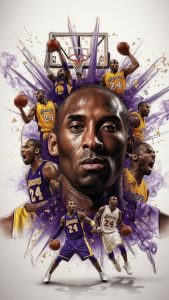
The NBA Today: Softer or Simply Smarter?
There’s a strong argument that today’s NBA isn’t softer—it’s safer and more strategic.
Safer
Rule changes reduced injuries, dangerous fouls, and hard contact.
Smarter
Teams use analytics to create efficient offense, avoid low-value plays, and maximize spacing.
More skilled
Players today are expected to shoot, dribble, pass, and switch defensively at a higher level than ever before.
A player like Nikola Jokić or Kevin Durant may not look “tough” in the traditional sense, but their dominance requires an elite mental and technical toughness.
How Kobe’s Legacy Still Shapes the League
Even though the game has changed, Kobe’s influence remains:
1. The “Mamba Mentality” Movement
Players across the league reference Kobe’s mindset as a source of motivation. Jayson Tatum, Devin Booker, Giannis, Kyrie Irving, and others studied his game obsessively. Many credit him for their work ethic.
2. The Importance of Skill Development
Kobe pushed the idea of mastering fundamentals, footwork, and mid-range scoring—skills that elite players still prioritize today.
3. Global Impact
Kobe’s international influence continues to inspire players worldwide. His approach to the game—not just his scoring ability—became a global blueprint for excellence.
So, Did the NBA Lose Its Toughness After Kobe?
The honest answer is:
The NBA didn’t lose toughness—it redefined it.
The physical battles of Kobe’s era have faded, but the mental and skill-based toughness required today is just as demanding, albeit in different ways. Still, it’s true that the league lost a certain edge, intensity, and ruthless competitive fire that Kobe embodied so uniquely.
In many ways, Kobe represented the last bridge between two eras—the hardened 90s and the modern skill revolution.
His absence is felt not because the NBA became soft, but because there may never be another player with his exact blend of grit, intensity, elegance, and obsession